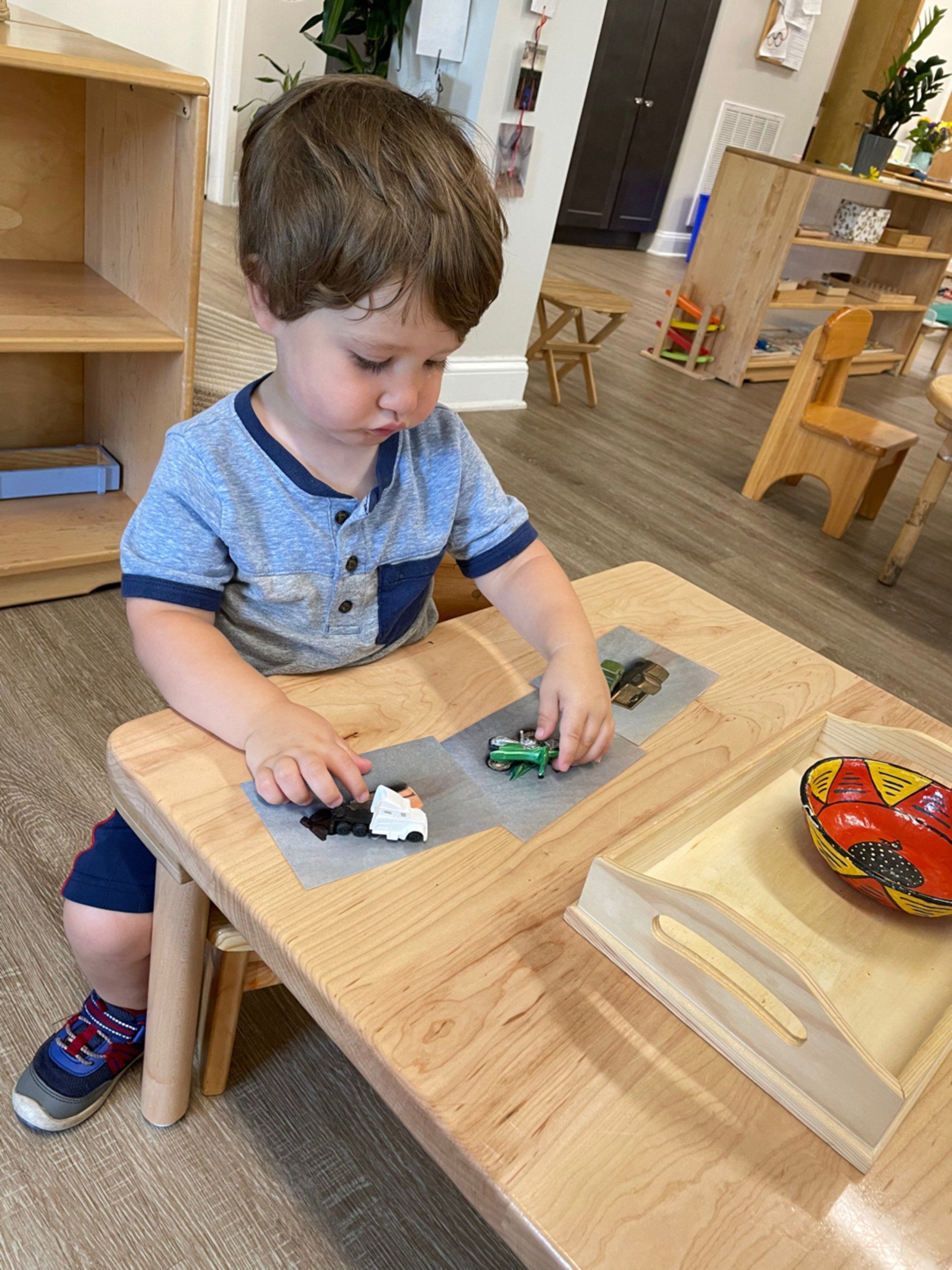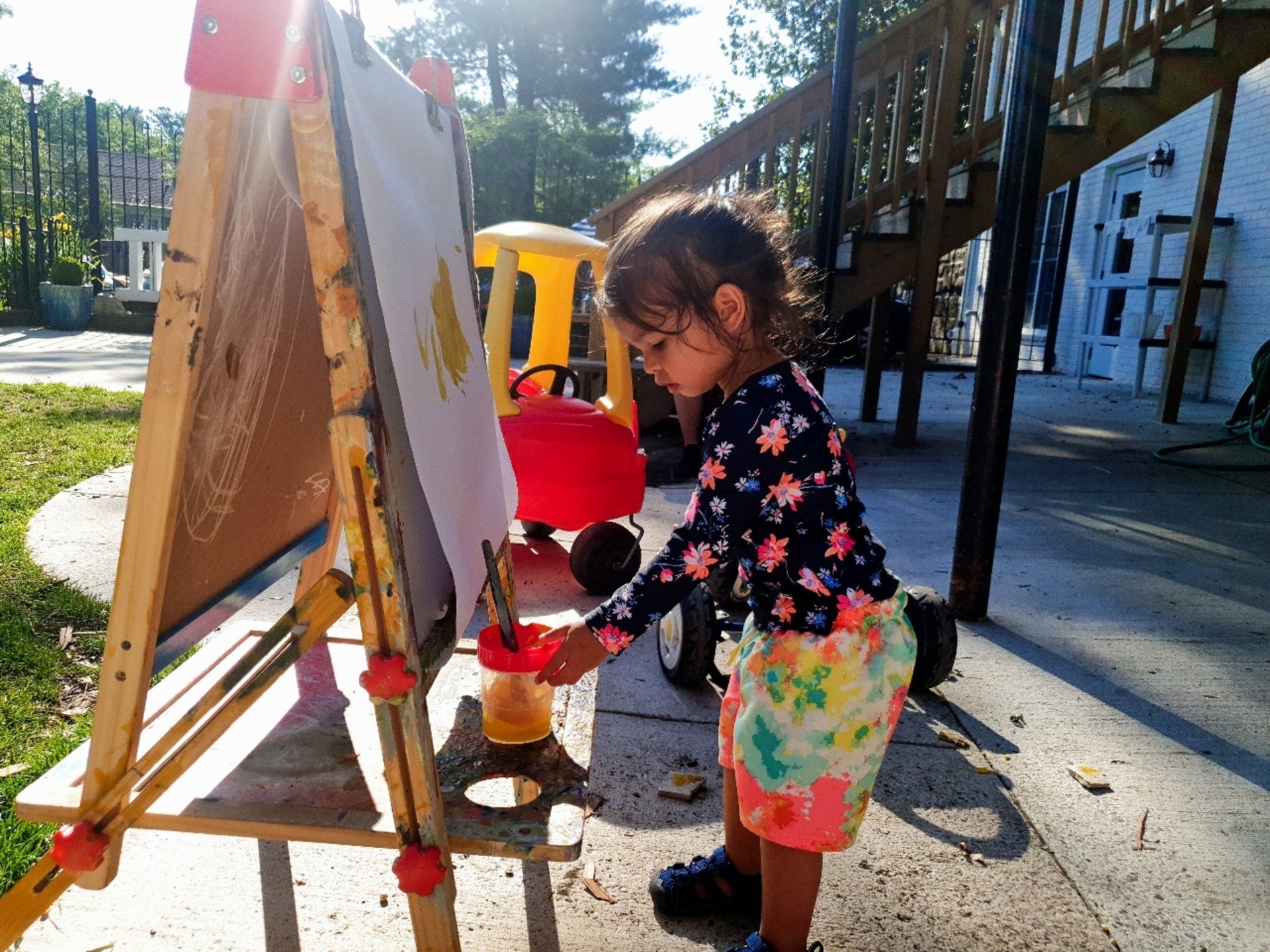Toddler
Journey to Independence
18 months - 3 years
This multi-age class forms a community of 12-16 children all working together or alongside one another. In this type of setup, an 18-month old learns how to put away their jacket and shoes in the morning. Two-year-olds learn how to prepare their own snacks, and 3-year-olds have the opportunity to teach their younger peers before moving on to Primary.
Key Facts:
- Ages 18 months to 3 years
- Half and full day options
- 4 and 5 day options
- Will work with parents to potty-train child
- Open registration is throughout the year
A Typical Day
- 8:30 a.m. – The children start with a nice welcoming exercise. They sing songs, have morning tefila, and learn parsha.
- 9:15 a.m. – The children then move into a morning routine of Montessori – play or what we call “work” until around 11 a.m.
- 10:00 a.m. – Prepare and eat a snack together with a friend.
- 10:45 a.m. – Visit the playground and play outside for half an hour.
- 11:15 a.m. – Luchtime
- 11:45 a.m. – Circle time back in the classroom and prepare for nap
- 12:15 p.m. – Noon Dismissal. Most toddlers nap until around 2 p.m.
- 2:00 p.m. – After nap activities, including story time, singing, playing with toys and more.
- 2:45 p.m. – Dismissal
This curriculum is subject to changes and alterations.
Sensorial Materials
Children practice spooning, pouring, folding, scrubbing, food preparation, table setting, and more. These exercises help the children master their control of movement and sharpen all of their senses, from visual to oral.
Sensorial Materials are designed to have what is called the “control of error,” which allows children to check their work without the need of a teacher. This helps to develop independence and problem solving.
Sensorial materials isolate one particular quality such as color, sound, texture, size, shape, temperature, and weight. Sensorial materials include color tablets, cylinder blocks, geometric shapes, and solids.
Practical Life
There is an emphasis placed on Practical Life in a Montessori classroom. Working on real-life tasks, like dressing, cleaning and caring for a plant, help instill independence, coordination, and concentration in students. To develop a sense of responsibility and self-esteem, teachers demonstrate tasks that direct children to care for the environment and themselves.
Language
The Pre-Primary classroom is rich in oral language. Children engage in rhymes, poetry, and storytelling. They also participate in numerous sound games.
Children learn a plethora of organized vocabulary by interacting with Montessori materials and by sorting and organizing objects and pictures into various categories. The students engage in these activities individually, in groups, and as a class.
“The first time I walked into the school, I was hooked. The classrooms were so beautiful. I’ll never look at regular school the same way. This is the way learning is supposed to be.”
- Madelaine Tayler, Parent
Art & Music
Our Toddlers are exposed to rhythm using an assortment of percussion instruments. They also sign throughout the day, especially during Tfila (prayer). Art materials such as crayons, paints, and glue are ever present in the classroom. Famous music scores and art pieces are often presented to the students.
Love of Nature
We believe in introducing our students to science early, familiarizing them with the basic principles of astronomy, botany, chemistry, physics, and zoology. This encourages and cultivates children’s fascination with the grandeur of the universe, physical laws and the miracle of life. Lessons for younger children range from sorting objects to watering plants.
Judaics
Singing the songs of Shabbat and the holidays are part of our weekly circle time. We bake and cook different dishes that coincide with our holidays and Jewish practices. We celebrate together each week as we listen to the parsha story and dance with music.
Ready to Move Up
Sometime between the ages of 2 1/2 to 3 years of age, your child’s language skills and self-expression will develop rapidly; he will express a growing confidence in independence and a keen interest in broader concepts; he will want to know what lies ahead, outside of the Toddler Classroom. At this point, he is ready to move up to the Primary Classroom, for children from the ages of 3 to 6.
If you think your child would thrive in a Montessori environment, give us a call or schedule a virtual tour online. We would love for you to visit our school and learn more.
OPENING HOURS
Elementary 8:15 - 3:00
Primary 8:15 - 3:00
Toddlers 8:30 - 2:45
After care - 4:00 (M, W, Th only)
PROGRAMS
Alef Bet Montessori School
Alef Bet Montessori School


